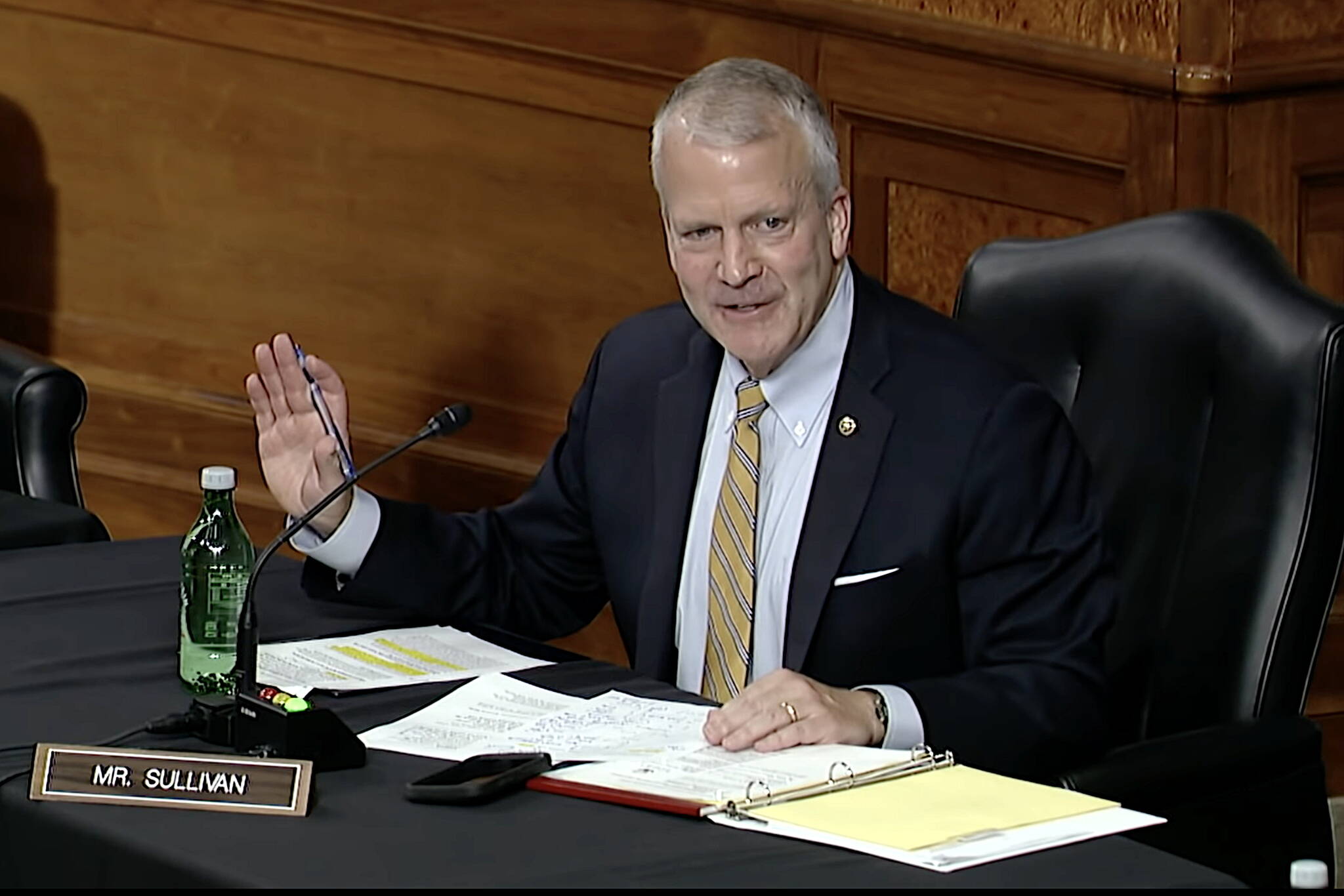In theory Alaska’s two U.S. Senators could find themselves with no committee assignments during the next two years thanks to about 0.9% Georgia’s population. However, in reality the outcome of Tuesday’s runoff election in that state resulting in a 51-49 Democrat-led majority likely means the two Republicans just won’t be quite as busy or influential in meetings.
Sens. Lisa Murkowski and Dan Sullivan are unlikely to see a reduction in their committee seats or see any major shakeups, with the main difference being the loss of a chance to chair subcommittees if Republicans had seized the majority. The actual outcome, of course, is still unknown pending developments until the next Congress starts, according to staff members and policy analysts.
Democrats, who performed better than expected nationwide in the mid-term election, were already assured of at least of retaining control the next Senate with the current 50-50 split and Vice President Kamala Harris casting tie-breaking votes in their favor. Committee assignments were evenly divided by party with that representation the past two years. A Democratic win in Georgia means the party will control the proportion of committee seats by party – and the official rules declare there’s no requirement to do so proportionately.
“Since the rules of the chamber do not contain provisions regarding committee ratios generally, the majority party possesses the potential to set them unilaterally,” the rules state. “In practice, however, ratios generally are set after negotiation between leaders of the two parties. Committee ratios usually parallel the overall party ratio in the Senate, with each party occupying a percentage of seats on all committees consistent with the percentage of seats it has in the Senate.”
Political practical considerations play into heeding traditional allocations, including the reality Republicans are considered likely to claim leadership of the chamber in the 2024 election because of the number of Democrat-held seats in red or swing states that will be on the ballot. The most recent 51-49 split of the Senate was in 2018, with a Republican majority and one-seat advantage on all committees but one, is a more indicative outcome.
More broadly, a study of committee makeups since 1983 generally shows slight advantages averaging less than 1% of the difference between the majority party’s Senate seats and committee assignments. The range spans from -1.7% (when Democrats had 60 seats and 58.3% of committee assignments) to 1.4% on all four occasions where the majority party had 51 seats and the one-seat committee advantage resulted in its members getting 52.4% of committee assignments.
Another indicator of the unlikelihood of notable shifts for Alaska’s senators is a pre-election projection for 2023 committee assignments based on an assumed 51-49 Republican majority by Elevate Government Affairs, a non-partisan policy analysis firm based in Washington, D.C. Even though Murkowski and Sullivan would be elevated to majority rather than minority status it shows no changes to their committee assignments or seniority – although had Murkowski lost her contested election prized assignments such as her Appropriations Committee seat would have been given to a senator from another state.
In addition to her appropriations seat (and related subcommittees), Murkowski is the ranking Republican of the Indian Affairs Committee and Interior-Environment Subcommittee. She is also a member of the Energy and Natural Resources Committee; and Health, Education, Labor & Pensions Committee.
Sullivan, the state’s junior senator, is on a few committees, with seats on Armed Services; Commerce, Science and Transportation, Environment and Public Works; and Veterans Affairs. He is also the ranking member of the Armed Services’ Subcommittee on Readiness, which he thus would have chaired if Republicans were in the majority.
Murkowski in particular was able to claim a significant achievement as a minority member in the current Senate with the passage of the Bipartisan Infrastructure Bill, and both Alaska senators have a list of policy and allocation goals related to the state for the next two years. Ben Dietderich, Sullivan’s press secretary, said in an interview Wednesday he doesn’t believe Democrats taking majority control of committees will alter the senator’s ability to pursue his agenda, due largely to the fact Republicans are taking over the majority in the U.S. House.
“I would not say it diminishes his ability,” Dietderich said, referring to the one-seat Democratic Senate majority. “The House is a bigger change, in a positive way, than the one seat-majority majority in the Senate…it provides a stopgap to the Biden agenda.”
That means policy Sullivan favors for Alaska will have a greater chance of approval while legislation he considers harmful, such as the Inflation Reduction Act, could be blocked, Dietderich said.
Murkowski, in interviews shortly before the election, said she wasn’t concerned about being in the minority affecting her Alaska agenda since she has been able to pursue agenda items while in similar minorities at times during 20-year Senate career. As with Sullivan, she said she also expects to retain her ranking-member status and committee membership choices.
Still, it’s not the preferred outcome for her that most analysts were predicting during much of the election season, until several controversial Republican nominees emerging from the primaries made the party’s takeover of the majority far less than certain.
“Would I prefer to be in the majority, and to help set the policies and the agenda for not only Indian Affairs, but for Interior Appropriations and the other appropriations committees I might be in line to chair?,” she said a few days before the election. “Absolutely.”
• Contact Mark Sabbatini at mark.sabbatini@juneauempire.com

